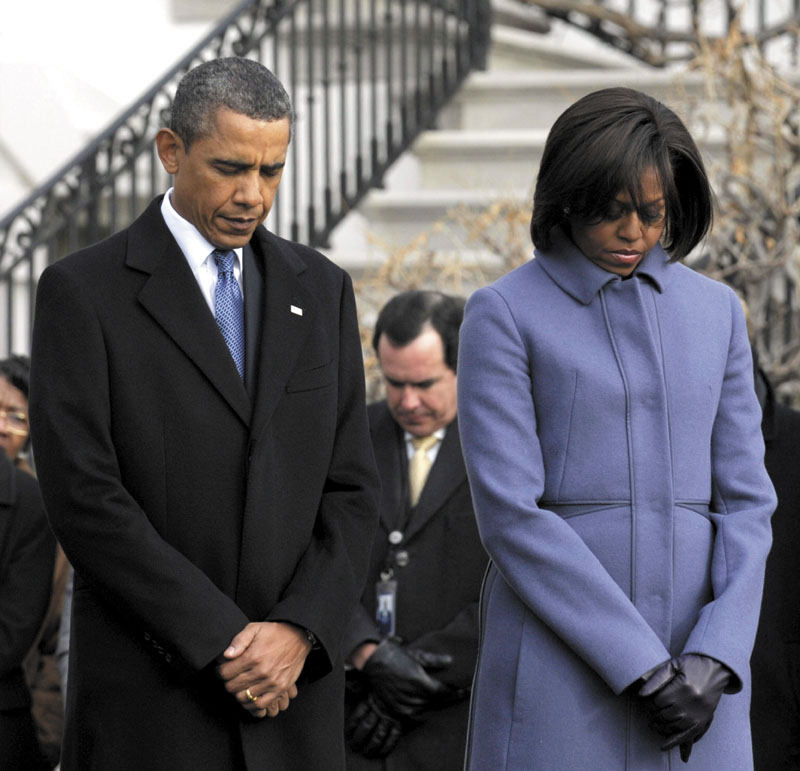President Obama said what needed to be said Wednesday night at a service for the slain and injured of the Tucson, Ariz., shooting rampage.
Because the victims included a congresswoman, now fighting for her life, and a federal judge, who lost his, it was impossible for many to view this senseless crime outside of a political context. Because our political culture is polarized, many were tempted to make the logical leap of blaming that polarization for this tragedy.
As soon as the first reports of the shooting started to circulate, people were already offering theories of how this fit in some larger context of recent, hard-fought political campaigns. Unlike the 9/11 terrorist attacks or the Oklahoma City bombing, which temporarily halted political divisiveness, the Tucson shootings inflamed them.
Obama asked us all to step back. A lack of civility in politics is bad because it prevents us from working together to solve common problems, he said. But no one knows what drove an apparently disturbed young man to violence. And the finger-pointing that followed the killings just further divides Americans.
“At a time when our discourse has become so sharply polarized — at a time when we are far too eager to lay the blame for all that ails the world at the feet of those who think differently than we do — it’s important for us to pause for a moment and make sure that we are talking with each other in a way that heals, not a way that wounds.”
We’ve all heard politicians decry partisanship before, but they almost always define it as something that the other party is doing. It’s rare to hear a message that could be equally applied to either side of the political divide. Not every news story should be seen as a potential wedge issue.
The most moving moments of the president’s speech came when he described 9-year-old victim Christina Taylor Green, “a young girl who was just becoming aware of our democracy; just beginning to understand the obligations of citizenship; just starting to glimpse the fact that someday she too might play a part in shaping her nation’s future.”
She had been elected to her student council and was excited about meeting her congresswoman in person. “She saw all this through the eyes of a child, undimmed by the cynicism or vitriol that we adults all too often just take for granted.” Obama said.
“I want us to live up to her expectations. I want our democracy to be as good as she imagined it.”
Those are meaningful, noble goals — goals that everyone engaged in political wrangling needs to think about. Let’s hope we all can stop talking for a moment and listen.
Send questions/comments to the editors.



Comments are no longer available on this story